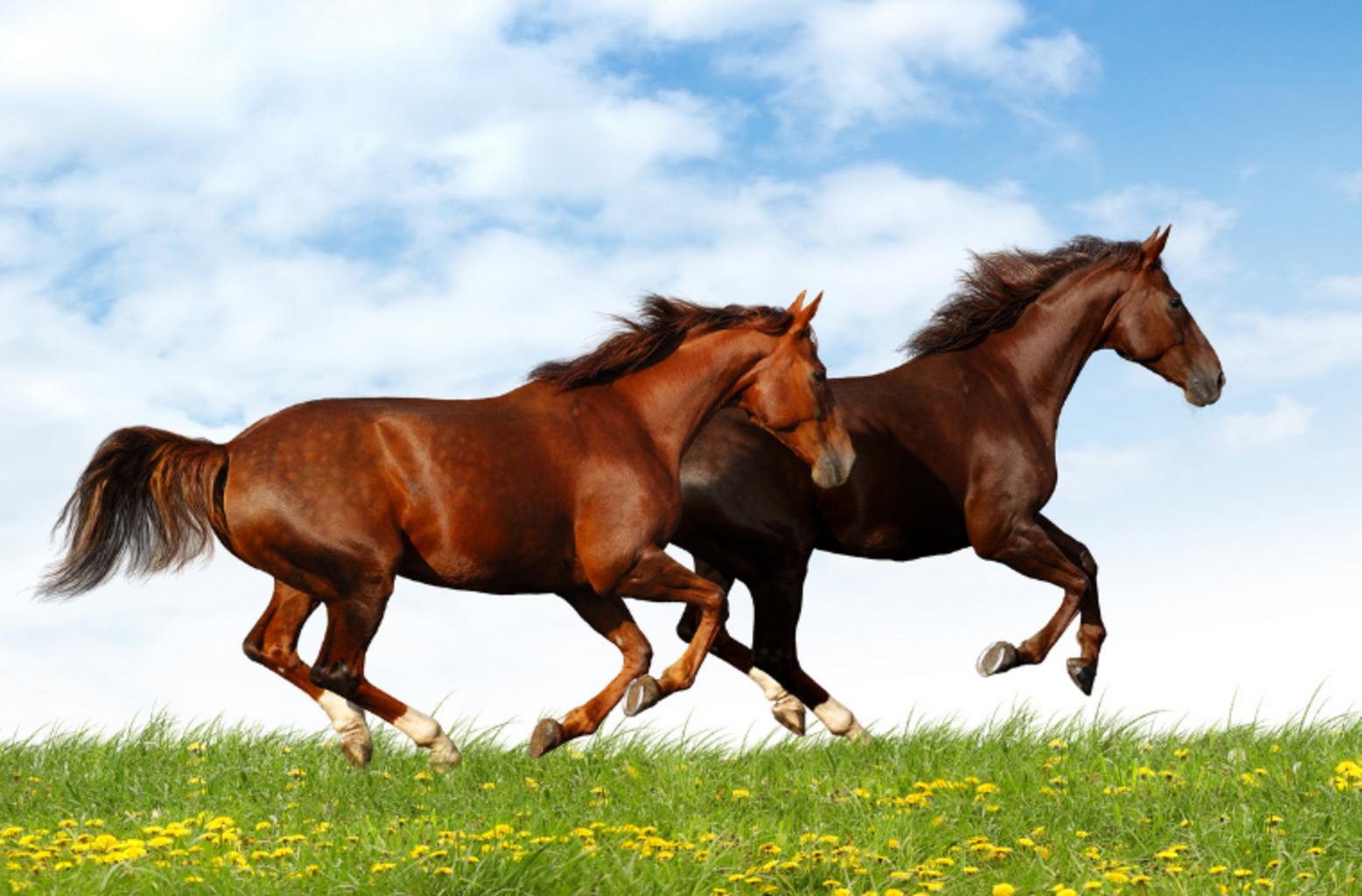Oil in horse feeding
By Amelie Kokorsky
Does feeding horses with oil make sense?
One should not answer this question too quickly or sweepingly with a "yes" or "no", because the topic of oil in horse feeding is very complex and should therefore first be examined in detail. Therefore, we first take a look at the anatomy of the horse. In detail, a look at the digestion and its associated digestive organs. The liver and gall bladder play an important role in the digestion of oil. The liver produces bile, which is needed for the digestion of fats and thus for the digestion of oils. The liver releases the bile produced into the gallbladder via the bile ducts. Bile is therefore stored in the gallbladder. If a fat-rich food pulp now enters the small intestine, the gallbladder is emptied and the bile is released into the small intestine. Fat digestion begins.
However, horses have the peculiarity that they do NOT have a gall bladder. This means that no bile can be stored. For the horse as a steppe animal and "permanent eater" this is actually not a problem at all. On the one hand, the horse constantly eats many small portions throughout the day, so that large feed portions are rather rare. On the other hand, fats are rarely found in the natural diet of horses. The grasses and seeds that the horse eats regularly on pastures and in hay do contain oils, but only in very small quantities and, due to the constant intake of food, only in very small portions. The horse does not need a gall bladder if it is fed in a healthy and species-appropriate way. Evolutionarily, the gall bladder has regressed without causing digestive problems. The horse's liver produces bile, which then passes through the bile ducts directly into the small intestine, where it can fulfil its function in the digestion of fats. When the horse ingests food, this process is started and small amounts of bile are continuously released into the small intestine without any storage being possible or necessary.
Some animals can even adapt the production of bile and the concentration of bile to the food they are fed. For example, if a dog is given a high-fat diet for a long period of time, the mechanism of bile production and the release of bile into the small intestine will be adapted. This adaptation process does not take place in the same way in horses - even after years of excessive oil feeding, no adaptation mechanism will take place. So if you feed the horse too much high-fat feed by adding large amounts of oil to the feed, the oil may not be digested properly in the small intestine and continue into the large intestine. Since the horse's large intestine is not designed for a high-fat food mush, this can lead to digestion problems in the large intestine.
So we can already conclude that the amount of oil seems to play an important role. Despite the initially deterrent effect of oil in horse feeding, I would not like to answer the question posed at the beginning with a "no", because the administration of oil also has many positive sides. So the concrete answer to this question is still a little while in coming.
What does the horse need oils for?
In the circle of horse owners, especially at the beginning of winter, one hears the words: "It is getting colder and my horse needs more energy to keep warm, so I feed him oil". From this statement one could conclude that oil feeding can help the horse to provide more energy. However, this statement should be viewed with great caution. A horse can hardly gain energy from oils. Horses cover most of their energy needs by breaking down fibres in the large intestine, i.e. by eating hay and grass. This process of energy production can even be optimized when roughage is scarce. For example, if you feed a horse 10 kg of hay a day and exercise it in small amounts, it will not lose weight in the first period if you increase the training workload. The organism will break down the fibres more effectively and thus get more energy from the same amount of hay. If the amount of food supplied would not be enough, the horse will start to "convert" its muscles into energy. The horse thus loses muscle and gains energy. However, this process should never be provoked! If horses convert fats into energy, this can be very dangerous for the animal. However, this process actually only takes place when there is too little roughage available and the animal is severely lacking in energy. Therefore, the horse should always have enough roughage available.
So oils are not primarily used for energy production. But what are they used for then? The horse uses the oils to build up hormones and new tissue and to protect the organs. Oil is primarily used as "building material". Oils are therefore not calculated in the energy balance. Most oils have a high content of polyunsaturated fatty acids, which are important for the horse's health. The structure of a single cell is very complex, so in this report we will only go into the superficial and simply explained function of oils on the cell. Oils can improve the elasticity of the blood cells and thus increase the flow rate. A good flow rate of blood cells is important for fitness and performance, for example. An elastic cell, whether a liver cell or a nerve cell, can have a positive effect on the animal's general well-being. Oils contain omega-6 fatty acids, which are said to have an anti-inflammatory effect - a particularly important and valuable point of oil feeding. Some vitamins are purely fat-soluble and therefore depend on the fatty acid for digestion. In addition, fatty acids can act like a "protective cushion" for organs and nervous system.

Which oils can be used in horse feeding?
There are many different oils on the market that are also used in horse feeding. The following is a list of some oils that are very popular with riders:
- Linseed oil = High content of omega-3 fatty acids, especially alpha-linoleic acid to improve skin, coat and aid digestion.
- Hemp oil = Good ratio of omega-3, omega-6 and omega-9 fatty acids. In addition, the oil contains (alpha-) linoleic and gamma-linoleic acids, which can have a positive influence on the horse's defense system.
- Rice germ oil = Contains gamma oryzanol, which can be used to support muscle development. It is also quite tasteless and is tolerated by the horse in the feed.
- Milk thistle oil = Contains silymarin, which can have a positive effect on the regeneration of liver cells. Can also strengthen the functioning of the liver
- Black cumin oil = Rich in polyunsaturated fatty acids. The oil can have a stimulating effect on the immune system.
But many seeds and nuts also contain fatty acids and valuable oils. The seeds can be used in the same way as the oils in horse feed. Seeds and nuts also have many positive features. Especially the two classics are suitable:
- Linseed or Linseed granulate = Can have positive effects on skin and coat. Compared to linseed oil, linseed granulate has a low fat content.
- Rosehip = The seeds of the rosehip contain oils. The rosehip is a good supplier of vitamin C and can support the immune system.
For which diseases or symptoms can oils support the horse's health?
Feeding oils can have a positive effect on the health of some diseases.
Linseed oil can have a positive effect on the horse's skin and coat quality due to its valuable ingredients and contribute to a healthy and well-functioning digestion. The effect of linseed oil on the horse's respiratory system is also particularly impressive. The fatty acids contained can positively influence the smallest lung units, the alveoli. This can improve the lung function. Especially horses with COPD/COB can benefit from linseed oil. Since lung diseases in particular are also associated with inflammation, linseed oil can also have an anti-inflammatory effect here. Horses that have respiratory problems are often extremely sensitive to dust. The owners often go to great lengths to prevent every conceivable possibility of coming into contact with dust. When giving concentrated feed, many owners forget about the dust content of concentrated feed, such as the dust in oats. Giving just a few drops of oil can help bind the dust in the feed and minimize the "dust load".
In polysaccharide storage myopathy (PSSM), the supply of carbohydrates in the horse's feed ration must be reduced. As the horse still needs to meet its energy requirements, feeding oil can make sense. The energy requirement can be partly covered with oil if the carbohydrate intake of hay and/or pasture grass is reduced. However, an increased administration of oil should always be carried out under observation and consultation of a veterinarian and/ or animal health practitioner, as such feeding deviates from the actual recommendation and is an exception.
Liver diseases are steadily increasing in today's horses, so that the liver should be supported in its countless functions/ tasks. One can support the liver with suitable herbs, but also the administration of milk thistle oil can have a positive effect on the liver activity and the regeneration of the liver cells.
Many horses that suffer from eczema and/ or have an immune deficiency can be helped with the administration of black cumin oil. The oil can help to stimulate the immune system and thereby improve the body's immune defense. Of course, a strong immune system can also fight eczema much better and the symptoms can be relieved. Black seed oil is also said to have a positive effect on the respiratory system and can therefore be used to support respiratory problems.
Again the question: Does feeding horses with oil make sense?
Now that we have looked at the subject of oil in horse feed in great detail, it is easier to answer the question of whether it makes sense to feed oil to horses. The answer is: YES, the use of oil in horse feed makes sense.
As the first chapter makes clear, one should definitely strictly adhere to the feeding guidelines! Too much oil in the horse's feed can otherwise very quickly have a negative effect on the digestive tract and thus on the horse's overall health. However, if oils are used wisely and with caution, owners and horses can benefit from the many positive effects of the various oils. No matter what sex, age or breed, a suitable oil can be found for almost any horse. Although we have only mentioned a very small selection of diseases, it is clear that the administration of oil can even help to support the healing process.
So take a little time and find the right oil for your horse. Used skilfully, it can add value to your horses' daily feed. A few drops can optimize the health, condition, nervous strength and well-being of our four-legged friends.
If you have any doubts or questions about the selection or dosage, consult your veterinarian and/ or trusted animal health practitioner or feed advisor. There is usually a suitable solution and oil for every problem ;)
Latest reviews
-
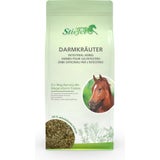 5.0 (12)
5.0 (12)Stiefel Intestinal Herbs, 1 kg
Bestseller- 100% natural herbal mixture
- For digestive problems
- To regulate the gastrointestinal tract
£21.49 (£21.49 / kg)Delivery by May 05
-
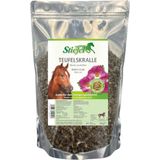 4.8 (9)
4.8 (9)Stiefel Devil´s Claw, Chopped, 1 kg
Bestseller- Good for joints & tendons
- Chopped roots
- Can have a positive effect on the musculoskeletal system
£26.23 (£26.23 / kg)Delivery by May 05
-
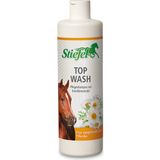 £8.68 (£17.36 / l)
£8.68 (£17.36 / l)Delivery by May 05
-
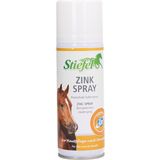 £9.56 (£47.80 / l)
£9.56 (£47.80 / l)Delivery by May 05
-
Great Britain: Free standard delivery from £79.90
-
Free
returns Secure payments
with SSL encryption technology

